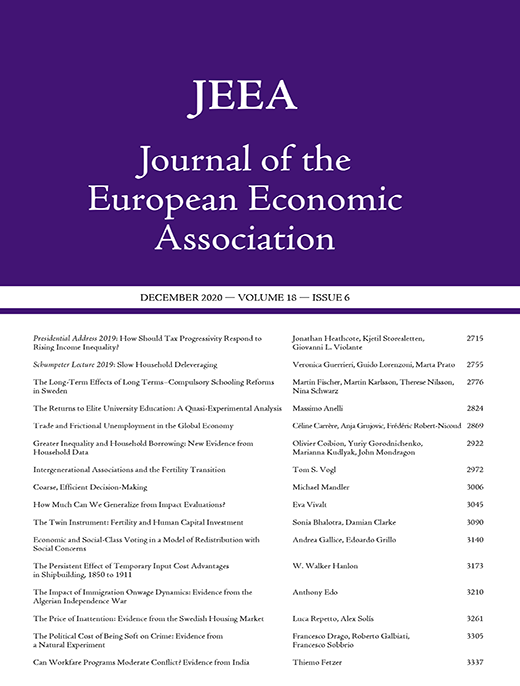Lift the Ban? Initial Employment Restrictions and Refugee Labour Market Outcomes
Abstract
This article investigates the medium to long-term effects on refugee labour market outcomes of the temporary employment bans being imposed in many countries on recently arrived asylum seekers. Using a newly collected dataset covering almost 30 years of employment restrictions together with individual data for refugees entering European countries between 1985 and 2012, our empirical strategy exploits the geographical and temporal variation in employment bans generated by staggered introduction and removal coupled with frequent changes at the intensive margin. We find that exposure to a ban at arrival reduces refugee employment probability in post-ban years by 15%, an impact driven primarily by lower labour market participation. These effects are not mechanical, since we exclude refugees who may still be subject to employment restrictions, are non-linear in ban length, confirming that the very first months following arrival play a key role in shaping integration prospects, and last up to 10 years post arrival. We further demonstrate that the detrimental effects of employment bans are concentrated among less educated refugees, translate into lower occupational quality, and seem not to be driven by selective migration. Our causal estimates are robust to several identification tests accounting for the potential endogeneity of employment ban policies, including placebo analysis of non-refugee migrants and an instrumental variable strategy. To illustrate the costs of these employment restrictions, we estimate a EUR 37.6 billion output loss from the bans imposed on asylum seekers who arrived in Europe during the so-called 2015 refugee crisis.

